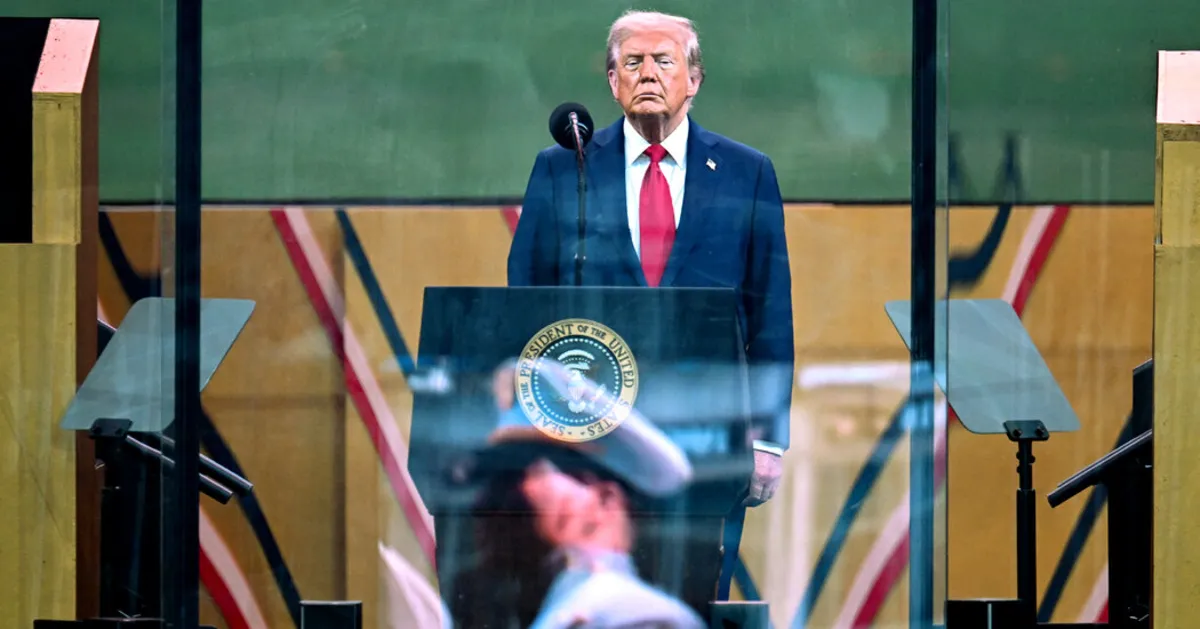
On his 79th birthday, former President Donald Trump dedicated over three hours on Saturday to observing a grand military parade that celebrated the 250th anniversary of the U.S. Army. This event was officially promoted as a tribute to American service members and a display of the nation’s rich military history. Supporters of Trump described the parade as a demonstration of strength and an astute recruitment strategy, seeking to inspire future generations to join the armed forces.
However, critics voiced concerns, suggesting that the parade represented a troubling trend of politicization of the military. This sentiment gained traction in light of recent events, including Trump’s controversial deployment of Marines to Los Angeles earlier that week to manage escalating protests. The juxtaposition of a celebratory military event and the backdrop of heightened political tensions raised eyebrows among political analysts and commentators alike.
The parade’s significance was somewhat overshadowed by reports of political violence and ongoing warfare. On Saturday, news cycles were dominated by a manhunt following the tragic assassination of a Democratic state legislator in Minnesota, alongside the attempted assassination of another. Speculation swirled throughout the day regarding the death of State Representative Melissa Hortman and her husband, Mark, as well as the shooting incident involving State Senator John A. Hoffman and his wife, Yvette, who both sustained injuries.
In the midst of these domestic crises, international tensions also escalated. Warfare between Israel and Iran intensified, raising alarms about the potential for a broader regional conflict that could involve the United States and other global powers. This complex geopolitical landscape added a layer of urgency and concern to the day’s events, highlighting the intricate relationship between domestic military displays and international affairs.
The combination of the military parade, ongoing violence, and escalating global tensions underscores the multifaceted challenges facing the nation today. As discussions continue about the role of the military in public life, the implications of such events will likely resonate in political discourse for some time to come.
For readers looking for more in-depth coverage of these significant events, please ensure you are logged into your Times account or consider subscribing to access all available articles and analyses. Thank you for your patience as we verify access to our content.